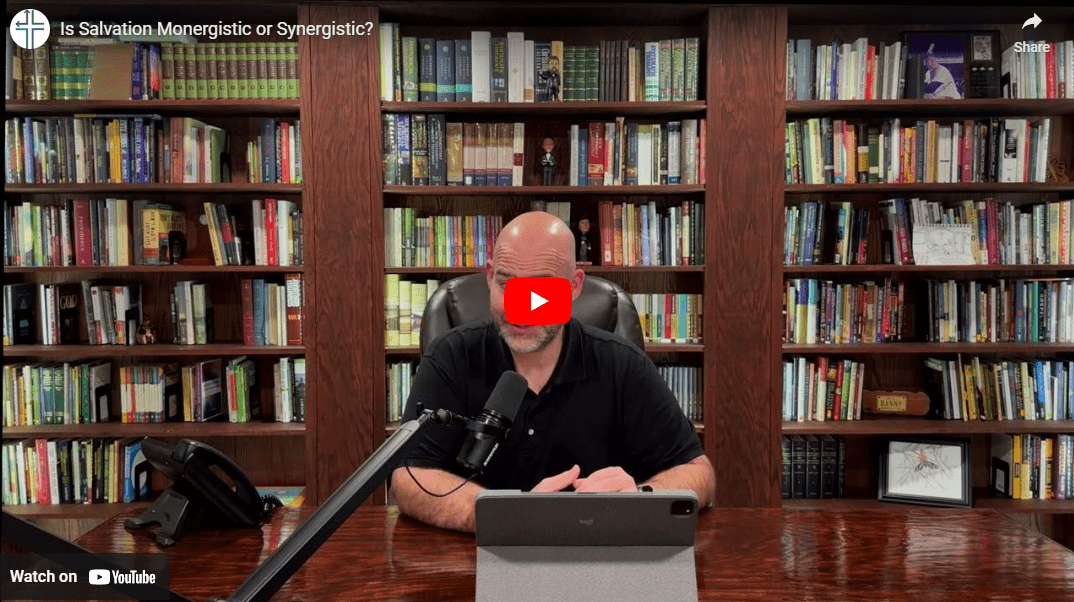Auto-generated Transcript:
Hello and welcome to another five good minutes, where I answer your theological questions in five minutes or less. Today’s question is whether salvation is monergistic or synergistic.
First, let’s define some terms. Monergistic salvation comes from the prefix “mono,” meaning “one,” and “ergos,” meaning “work.” Essentially, it’s the belief that God alone accomplishes our salvation from beginning to end. Meanwhile, synergistic salvation combines “syn,” meaning “with,” and “ergos,” meaning “work,” implying a cooperation in which God doesn’t save entirely by Himself but needs our help or cooperation to complete the process.
I stand with Augustine, Calvin, and Luther in believing that salvation is monergistic, thus rejecting the Pelagian, Arminian, and semi-Pelagian views that lean toward synergy. The confusion often arises in reconciling God’s sovereignty in salvation with human responsibility. If salvation is 100% God’s work, some wonder whether we’re still responsible to believe. The answer is yes—God is sovereign, and we are responsible to respond. However, these two truths are not in conflict; they work in harmony.
Where you land on this question depends on how much you believe humans can do for themselves spiritually and morally without divine intervention. If you think people can contribute anything at all, you’ll lean toward synergism. But the Bible presents humans as totally depraved—morally bankrupt, spiritually dead, and hostile to God—yet still responsible to obey His commands. Since no one is capable of doing this on their own, salvation must be entirely God’s work. If God left even 1% of salvation to our own efforts, we would be lost.
Ephesians 1:4–5 shows us that God chose us in Christ before the foundation of the world and predestined us to be adopted. He did this according to His will, not based on anything we would decide. In Romans 9:16, Paul explains that salvation “depends not on human will or exertion, but on God, who has mercy.” And Ephesians 2:8–9 reminds us, “For by grace you have been saved through faith. And this is not your own doing; it is the gift of God, not a result of works, so that no one may boast.” Even faith itself is a divine gift.
In other words, salvation is monergistic: there is only one worker in our salvation—God. The Father chose us before time began, the Son accomplished our redemption through His death and resurrection, and the Holy Spirit applies the gospel to our hearts, granting us the faith to believe. None of it is our own doing. It’s all of God, from start to finish.
This has been another five good minutes.

